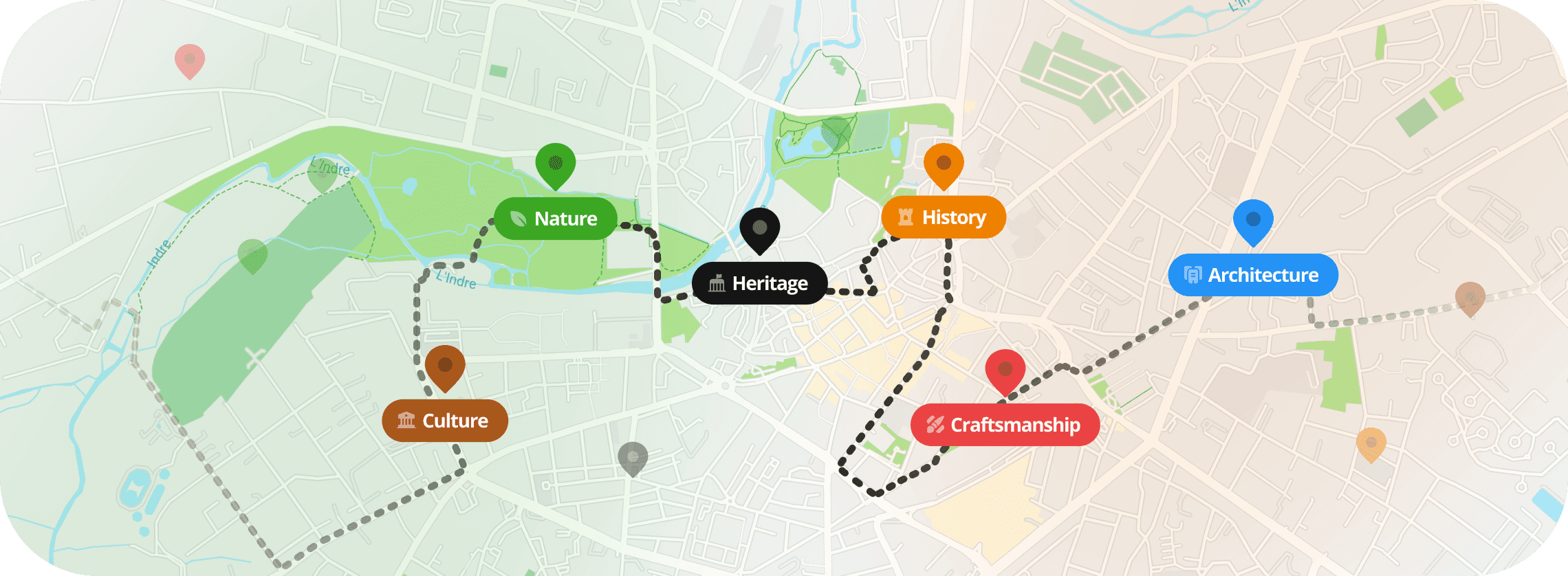Crafting lasting connections with travelers through Smart Tourism
Table of contents
In the current digital era, the adoption of Smart Tourism is imperative for travel industry players aiming to stay competitive. This innovative approach redefines the tourist experience, offering more connected, personalized, and sustainable journeys, thereby fostering visitor loyalty and boosting the growth of regions.
What is Smart Tourism, and what real impact does it have on the tourist experience? What are the challenges associated with its expansion? We delve into all of this in this article !
Understanding Smart Tourism
Revolutionizing tourist experience through connectivity and innovation
The concept of Smart Tourism arises from smart cities seeking to enhance urban services and citizens' quality of life using information and communication technologies (ICT). In this context, tourist zones aim to create synergy among tourists, residents, and services while becoming more accessible and sustainable.
On a broader scale, Smart Tourism aims to enhance visitor experiences at every stage of their journey : before, during, and after.
To achieve this, the concept relies on several criteria :
Development of responsible tourism and awareness of sustainable mobility like walking or cycling,
Digitization of tourist routes and integration of new technologies,
Destination marketing development,
Integration of visitors into the environment by simplifying their interactions and access to information,
Creation of personalized tourist experiences based on real-time data within the destination.
How Smart Tourism benefit tourist retention?
Experiential tourism : the path to engaged and sustainable travel
Travelers' needs and desires are evolving towards actively engaging with the history and culture of a destination, fostering a more environmentally and locally respectful form of tourism known as experiential tourism.
By offering travelers a unique and value-added experience, tourism stakeholders contribute to building emotional connections and lasting memories with the territory. This connection promotes the loyalty and retention of tourists.
The integration of Smart Tourism is crucial for retaining visitors in cities used as gateways to other popular tourist destinations. Often relegated to the status of mere waypoints in travelers' journeys, these cities have the opportunity to transform this transition into an unforgettable experience by investing in innovative technologies. This investment can not only extend the duration of travelers' stays but also encourage them to return, contributing to the economic and cultural vitality of the region.
Destination marketing development
Adapting to Smart Tourism : marketing strategies for less attractive territories
For less attractive territories, it is crucial to promote and facilitate access to available tourist offerings well before travelers visit. Therefore, the adoption of Smart Tourism must be accompanied by an adaptation of marketing and communication strategies.
This adaptation involves :
Identifying different traveler typologies and their needs,
Personalizing offered services and planning and booking routes,
Creating a strong brand identity reflecting the values and specificities of the territory,
Developing innovative and connected digital tools.
Today, most tourism organizations have a web or mobile solution serving as a virtual showcase for the destination's tourist and cultural offerings.
These platforms become interactive gateways, allowing travelers to plan, customize, and book their trips with ease. By providing detailed information on local attractions, accommodations, events, and activities, these digital solutions facilitate travelers' discovery and decision-making processes.

Digital innovation serving tourist experience
Virtual reality and travel : unveiling heritage through Smart Tourism
By integrating new technologies, Smart Tourism contributes to elevating and reimagining travelers' experiences to create distinctive services.
Travel planning and the management of tourist sites are revolutionized through geolocation and data analysis technologies. Tourists now have access to interactive maps showcasing the region's tourist offerings and can check the real-time popularity of their favorite landmarks.
In addition, the use of virtual and augmented reality allows visitors to immerse themselves in unprecedented interactive experiences to discover the destination and its culture, whether on-site or comfortably from their homes.

eJourneys : digital innovation at the tourist experience heart
The eJourneys mobile application by BeTomorrow places tourist organizations at the forefront of digital innovation. It invites travelers to explore the culture and richness of a territory in a playful manner through thematic routes. Each journey tells a story and highlights local heritage through interactive content such as quizzes, videos, or augmented reality.

Looking to enhance the attractiveness of your territory and showcase its heritage innovatively?
Discover our solution, eJourneys, now : https://www.ejourneys.app


